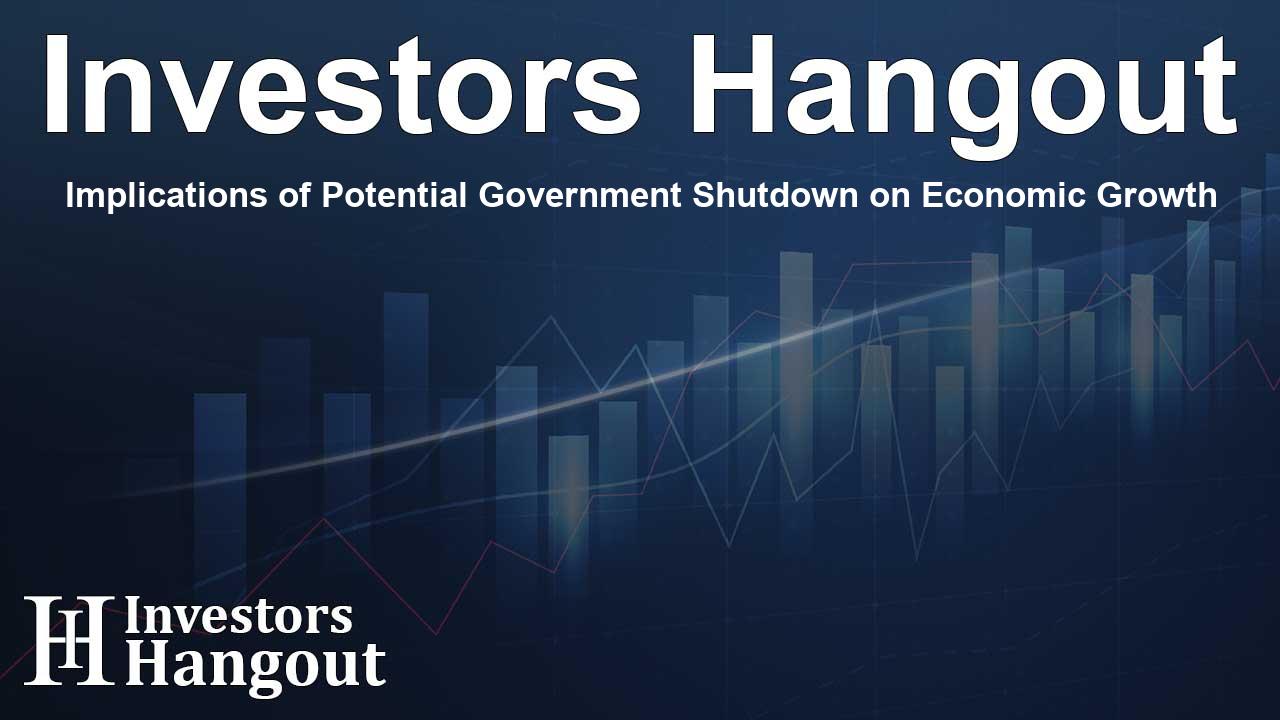Implications of Potential Government Shutdown on Economic Growth

Implications of a Potential Government Shutdown
The current landscape of the US economy is complex, with the private sector acting as a key driver of growth. However, the government also plays a significant role in shaping economic conditions. A possible government shutdown could have meaningful repercussions despite the private sector's resilience.
Reasons Behind the Impending Shutdown
Political dysfunction in Washington has brought us to this precarious moment. A recent attempt to pass a crucial bill failed, leaving House Speaker Mike Johnson with the daunting task of creating a new proposal to prevent a shutdown. Unfortunately, the chances of immediate passage seem unlikely.
What Would a Government Shutdown Mean?
Should the government shut down, the most pressing question is how long it would last. Historical contexts provide insight into potential outcomes. For instance, a government closure affects federal operations and services, leading to delays in funding and critical operations.
Understanding Federal Influence on the Economy
The federal government's spending was approximately 6.4% of the GDP in a recent quarter, with defense consuming a major portion of that expenditure. These statistics might seem abstract, yet they signify real-world impacts, such as interruptions to federal services and wages.
Historical Insights from Past Shutdowns
Reflecting on the 2018-2019 partial government shutdown offers essential perspectives. During that period, around 800,000 federal employees faced furloughs, significantly impacting economic output. The Congressional Budget Office reported that the shutdown resulted in a notable delay in federal spending, consequently influencing economic growth negatively.
The Economic Fallout
The aftermath of a government shutdown often reverberates through the economy. In 2018, the GDP for the fourth quarter was reduced by 0.1 percent due to the shutdown, while the first quarter of 2019 saw an estimated reduction of 0.2 percent. This drop emphasizes the potential damage that political stalemates can inflict on GDP and general economic activity.
Current Expectations for the Economy
Should a shutdown occur, it is important to remember that only certain non-essential departments would close down. Essential services—like those provided by the Transportation Security Administration—will continue to function, and critical payments such as Social Security would remain unaffected.
The Ongoing Political Challenge
As priorities ebb and flow in Washington, the focus shifts toward finding legislative consensus. House Speaker Johnson has expressed the necessity of compromise between parties to navigate this challenging scenario. Nevertheless, the current outlook appears dim, with significant obstacles to swift resolution.
Looking Ahead in Uncertain Times
The looming threat of a government shutdown introduces several layers of uncertainty for the economy. With a history demonstrating the detrimental effects of government closures on growth and service delivery, it is crucial to consider both immediate and long-term implications. The ability of lawmakers to cooperate, compromise, and react to the urgency of the situation will ultimately dictate the path forward for the economy and the citizens it serves.
Frequently Asked Questions
What is the likely impact of a government shutdown on the economy?
A government shutdown may lead to delays in federal spending, furloughs for workers, and negative impacts on GDP growth while essential services continue.
How has past government shutdowns affected economic growth?
Previous shutdowns reduced GDP growth rates, with significant economic activity lost due to delayed compensations and federal expenditures.
What roles do essential services play during a shutdown?
Essential government services, such as security and social welfare, typically continue operating, mitigating some economic effects of a shutdown.
Why is there political dysfunction regarding government funding?
Political stalemate often arises from disagreements within Congress over budget allocations and priorities, complicating timely funding solutions.
What are the long-term implications of a potential shutdown?
Long-term implications could include reduced business confidence and investments, potentially leading to slower economic recovery and growth.
About The Author
Contact Dominic Sanders privately here. Or send an email with ATTN: Dominic Sanders as the subject to contact@investorshangout.com.
About Investors Hangout
Investors Hangout is a leading online stock forum for financial discussion and learning, offering a wide range of free tools and resources. It draws in traders of all levels, who exchange market knowledge, investigate trading tactics, and keep an eye on industry developments in real time. Featuring financial articles, stock message boards, quotes, charts, company profiles, and live news updates. Through cooperative learning and a wealth of informational resources, it helps users from novices creating their first portfolios to experts honing their techniques. Join Investors Hangout today: https://investorshangout.com/
The content of this article is based on factual, publicly available information and does not represent legal, financial, or investment advice. Investors Hangout does not offer financial advice, and the author is not a licensed financial advisor. Consult a qualified advisor before making any financial or investment decisions based on this article. This article should not be considered advice to purchase, sell, or hold any securities or other investments. If any of the material provided here is inaccurate, please contact us for corrections.
